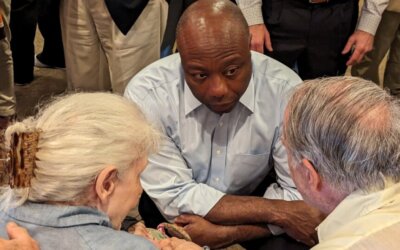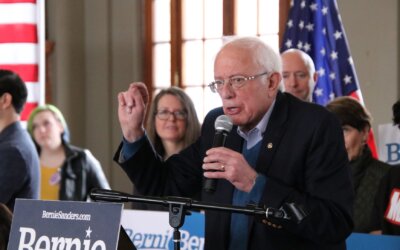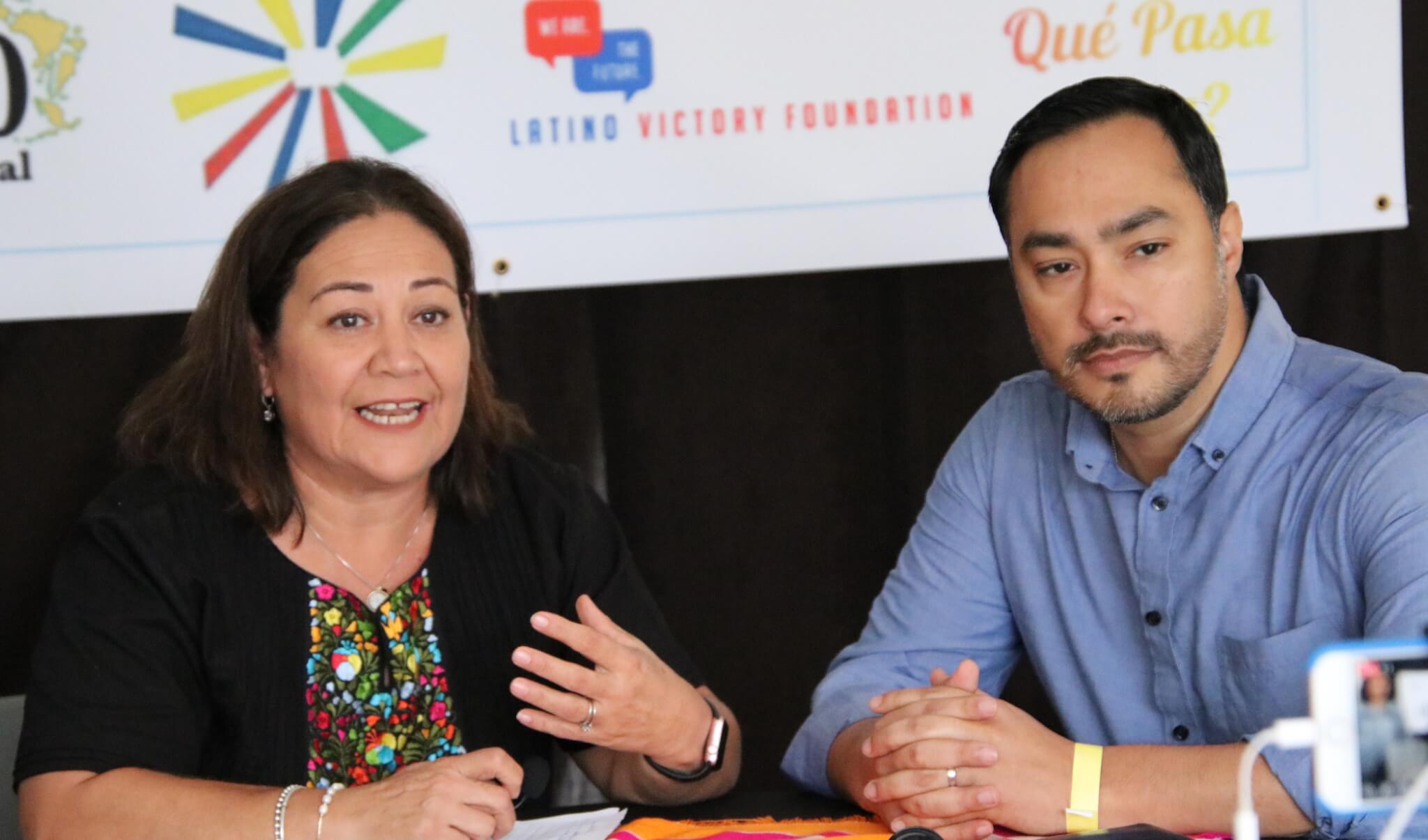
Iowans are used to the enthusiasm surrounding presidential elections, meeting candidates at house gatherings and asking questions on issues that matter to them.
This is a frequent occurrence, a chance that at times may be taken for granted. The chance for many to hear the stump speeches at the Iowa State Fair does not go unnoticed.
For new Iowans, at first it may not be common knowledge that voters here are the first to cast ballots in a presidential election. “First in the nation caucuses” — what does that mean? Why is there such a fuss? Candidates are traveling the state on a regular basis, why?
For many who come from Latin American countries, the few memories they have about politics are not pleasant. Some may recall dictatorships and unstoppable government corruption. Democracy is either nonexistent or associated with election fraud, or even death of those who seek the democratic process.
[inline-ad id=”2″]
So, when we think of Latinos in Iowa, we must turn to the numbers. Latinos are the largest and fastest growing minority in the state, about 200,000 strong. Nearly 65,000 are eligible voters.
Access to presidential candidates, invitations to attend special events or even the idea of hosting a candidate are remote, unthinkable or simply are meant for a chosen few. It is difficult to share in the excitement when one does not have access to, or is not part of, the system.
Latino Forum of Central Iowa members set about changing this dynamic in 2015. One of its members, Alba Perez, came to a regular Saturday meeting that summer, after visiting the Iowa State Fair and said: “Why don’t Latinos have the same direct access?”
[inline-ad id=”3″]
She asked the forum members if she could approach Latino Resources, Inc. on their behalf and present a proposal [Latino Resources, Inc. is the entity that organizes the Iowa Latino Heritage Festival]. Latino Resources board members heard a proposal from Perez on behalf of the forum and unanimously voted to approve a first-of-its-kind Latino Forum Soapbox.
Latino Resources committed to providing space and the forum committed to the planning. The forum put together a small committee to bring the project to fruition.
“We wanted Latino and Latino families at the festival to be able to connect with candidates, hear their priorities and be informed prior to election time,” said Alex Piedras, a member of the organizing committee.
[inline-ad id=”0″]
The idea from the start was to make candidates accessible to “la familia” because “la familia” is the Latino culture’s most important influencer, their decision center. This meant the Soapbox had to be available in English and Spanish.
Latino families often have diverse status individuals within the same household, where some may be eligible voters while others are not. Latino family members may have different levels of English language attainment, so interpretation was important in the planning process.
The first politicians to participate were 2016 presidential candidates Gov. Martin O’Malley and Sen. Bernie Sanders. Perez expressed that “showing up, talking to our community and discussing issues that matter to them was showing our community respect and consideration.”
Now, four years have passed since the first Soapbox. The Soapbox has continued its commitment to providing access for Latinos to presidential candidates. In 2018, the opportunity to partner with a new and highly respected podcast, Que Pasa Iowa? came about. This gave way to a new format of interviewing candidates and party leaders, asking questions about issues impacting Latinos. The podcast has become an essential part of the Soapbox.
[inline-ad id=”1″]
Then came 2019’s newest partner, Latino Victory Foundation, a national nonprofit and nonpartisan organization based in Washington, D.C. The foundation added to the Soapbox in several ways, including reaching out to campaigns from a national platform. This year, there was a growing sense of urgency among Latinos with issues expanding from immigration reform, to health care, education and sense of concern for their safety, even before the Wal-Mart mass shooting in El Paso, Texas.
Many presidential campaigns sent surrogates to the Soapbox this year, providing the audience an opportunity to see top-level Latinos working for the respective candidates.
Conversations with these individuals were more insightful than a stump speech; they are in the campaigns working on priorities with candidates and understand what is at stake for Latinos. Undoubtedly, this time the Soapbox had new depth of content, and as interviews were uploaded and reviewed by Latino families, the hope continues that the Soapbox is not a one-day event but a game-changer for Latino voters in Iowa.
The Soapbox is a catalyst that provides access, better understanding and can influence Latinos to become more engaged in the democratic and political process. After all, 65,000 voters can make a significant difference in many races in Iowa, a bloc not to be ignored or viewed with disdain.
By Claudia Thrane
Posted 10/17/19
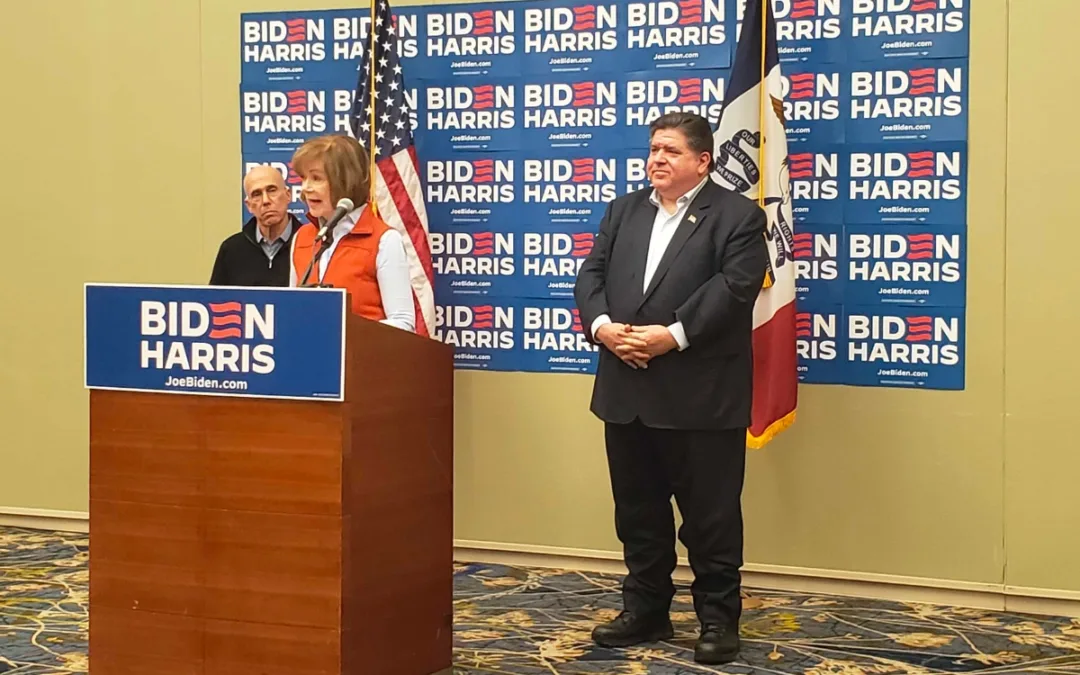
Original, heels or boots: Pritzker says leading Republicans are all MAGA
Illinois Gov. JB Pritzker said all three leading candidates in the Iowa GOP caucus—Donald Trump, Nikki Haley, and Ron DeSantis—represent the same...
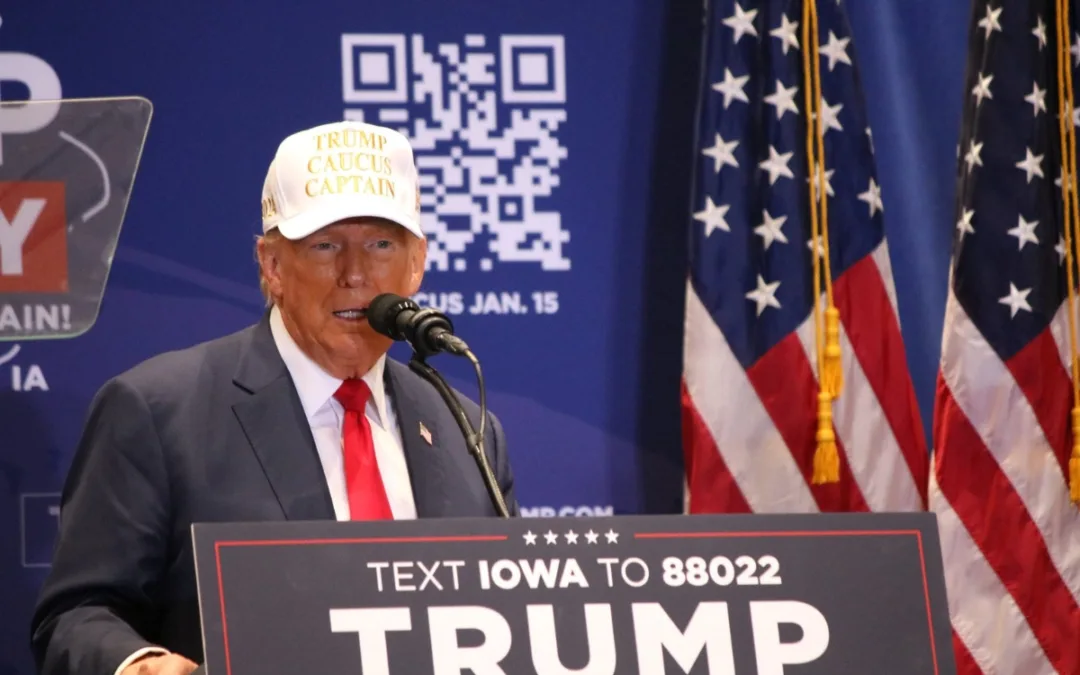
Trump tells supporters it is worth dying to caucus for him
Former President Donald Trump continues to encourage his massive base to turn out in droves for him during Monday’s Republican caucus and told an...

Climate change protesters disrupt Ron DeSantis event
Climate protesters disrupted a Gov. Ron DeSantis campaign event in Ames on Thursday night. Three protesters were escorted out of the room at...

Evangelical leaders predict huge caucus turnout, downplay endorsements
Iowa caucus candidates have racked up big-name endorsements—including a notable last-minute flip flop—but one evangelical leader said none of that...
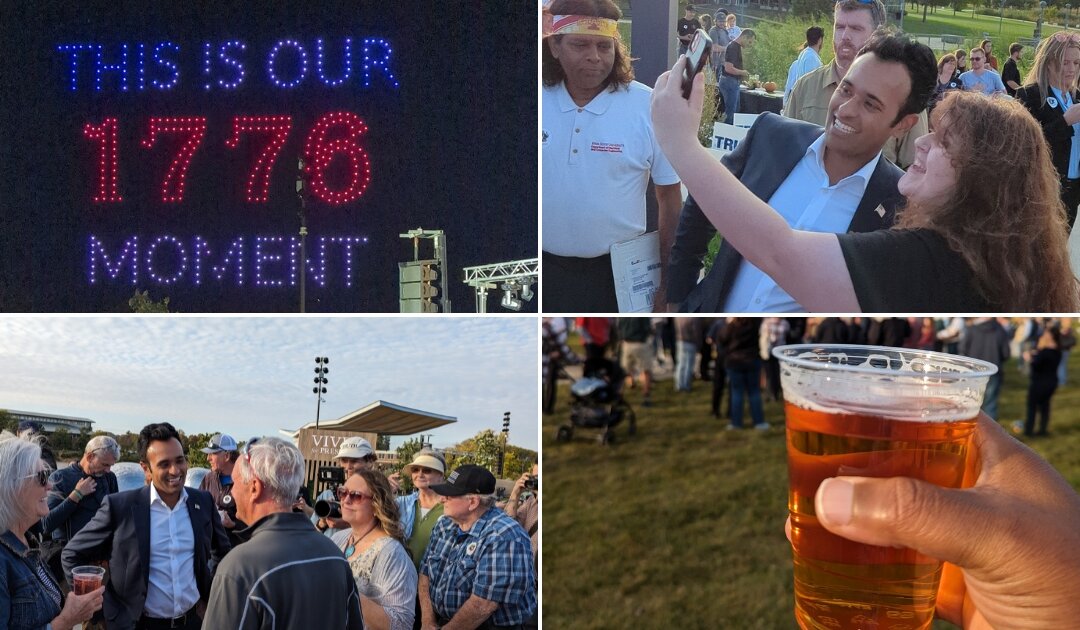
We went to Vivek Ramaswamy’s ‘Vektoberfest.’ Here’s what we saw
As I sat on a park bench eating a bacon-grilled cheese sandwich, drinking an Exile Ruthie straight from the tap, and chit-chatting with a few folks,...
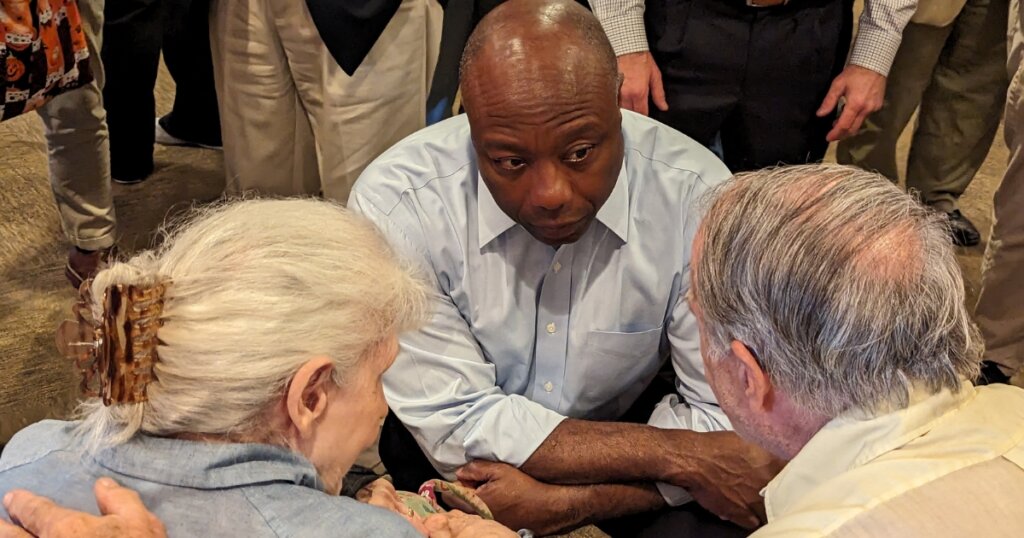
Tim Scott says kids need more exposure to conservatism
While many Republicans across the country have spent the last few years arguing that public schools are being used to indoctrinate kids into leftist...


